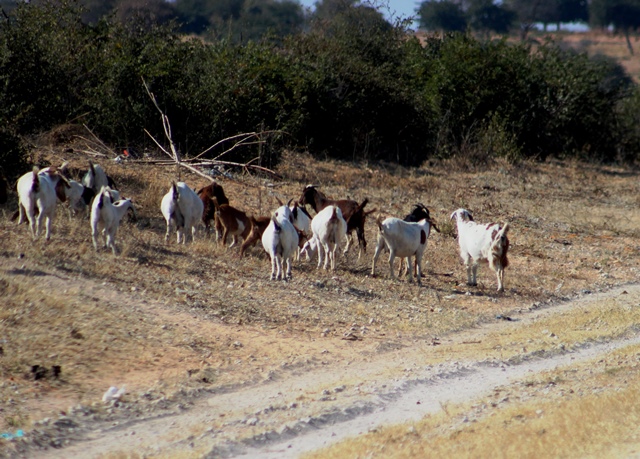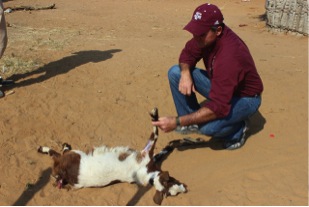Sometimes the most impactful cultural experiences come at the most unexpected times. Our group was on the way to Popa Falls, driving just north of the red line, when out of nowhere, there was a loud bang. The bus began to swerve, tires screeching across the road. I looked up alarmed, heart pounding. That sound came from under the bus. We hit something. We hit a goat.
My first thought when crossing the Red Line: why are there animals running all over the road? Northern Namibia has very few fences for the animals, especially north of the red line. Not only does most of Namibians population reside here, but the majority of citizens live in communal farms. Driving through this region we saw multiple herds of cattle, goats, and pigs; most of which just roamed loose on the road. Communal farmers in Namibia value their animals more than we value money. Because their animals are their money; how many cattle, sheep, or other animals they have determine one’s wealth. Although you would think people would steal them for this very reason, it’s just not how it works. People recognize their livestock, similar to how we would recognize how personal assets back home.
Instead of driving on, ignoring the dead goat in the road. We did the right thing, we stopped at the village. You have to remember, these animals are their livelihood. Could you imagine if we had just driven away? It would have been like stealing their money that blew across the road. It would it be insensitive and rude, and also disrespectful of their culture. We went into their village and offered to pay for the goat. The man standing over his dead goat said “200,” which is $20 US. We paid the man, gave our apologies and then continued our journey to Popa Falls. We were extra careful, keeping our eyes peeled for any more animals that may run across the road.


